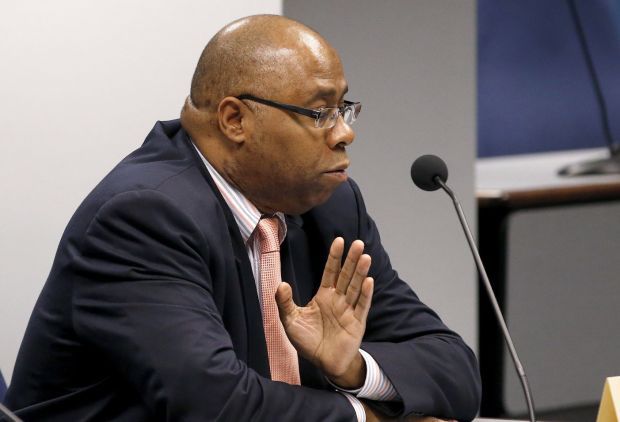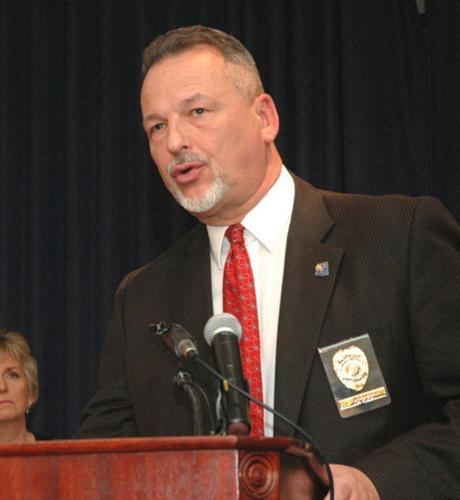PHOENIX — Five child welfare workers fired in the wake of a scandal about uninvestigated abuse complaints will not be getting their jobs back.
In its ruling Tuesday, the state Court of Appeals did not address whether it was fair for the state to dismiss the workers who were linked to marking certain cases as NI, as in “not investigated,” despite laws requiring all such complaints to be researched.
Their attorney, Terry Woods, said they were “scapegoats” for decisions made by upper management.
Instead, appellate Judge Andrew Gould, writing for the unanimous three-judge panel, said the five were all supervisors.
What that means, he said, is they were “at-will” employees who, under state law, could be fired for no reason at all.
The appellate judges also rebuffed Woods’ request they ignore that law and rule that, as a matter of public policy, it was wrong of the state to fire them simply to provide “official political cover” for the policy that resulted in bad publicity.
But they reserved for another day — and another case — whether the law declaring all employment relationships to be severable “at will” is unconstitutional.
Woods represents five upper-level managers who were let go: Deborah Harper, Tracey Everitt, Janet Sabol, Michelle Parker and Jana Leineweber. Woods said Tuesday he is weighing whether to seek Supreme Court review.
The case has its roots in the finding in late 2013 that almost one of every 12 child-abuse complaints reported to Child Protective Services that year was not investigated. Clarence Carter, whose agency at the time had purview over CPS, said his top investigator had found there had been an unofficial policy at the agency of marking certain complaints as “not investigated” even before any further inquiry was done.
Carter said the process started as a way to prioritize cases to deal with limited resources. But he said it had accelerated to a point where nearly half of those 6,000 cases designated “NI” since 2009 occurred in 2013 despite state law that there be at least some investigation of every complaint that meets certain criteria.
An inquiry by the Department of Public Safety concluded the five were part of a special team charged with handling the backlog of CPS complaints.
Charles Flanagan, head of the newly created Division of Child Safety and Family Services, said they were instrumental in crafting the policy that resulted in ignoring the laws on mandatory investigation.
Flanagan said, though, the DPS report showed no evidence of malicious intent.
“It appears what they were trying to do is take some of the workload off the field,” he said, with abuse and neglect complaints coming in faster than caseworkers could handle them. And Flanagan said all that was complicated by CPS budget cuts.
The five, who had been put on leave, were subsequently fired.
Woods, in filing suit in 2014, said the report that led to their termination was essentially a predetermined fix.
“The conclusion was reached before the investigation was done,” he said of the DPS inquiry.
He said once it became clear that many complaints had been marked as not investigated, a decision was made that someone had to be blamed.
“I think there’s a really good chance that a decision was made somewhere up the chain that some heads had to roll and that was the way this thing was going to end,” Woods said.
But the appellate judges said the only thing that matters is what Arizona law says about the rights of workers.
Gould, just appointed by Gov. Doug Ducey to the Arizona Supreme Court, said employees are considered to be “at will” and can be fired at any time unless there is an actual contract to the contrary. That’s not at issue here.
There are exceptions, he said, like when a firing a state law or runs afoul of public policy as set forth in statute. And Gould said people who are fired for refusing to violate a state law also have legal remedies.
But the judge rejected the claim by the fired workers that it is contrary to public policy to fire them because they were competently performing their jobs. He said all were supervisors who were not covered by state personnel rules then in effect.
The workers separately said they were directed by supervisors to use the “NI” designation on files.
And they said if they had disobeyed that direction they would have been guilty of the crime of knowingly failing to perform a duty “which is required by law.”
Gould was unimpressed.
“No law required CPS, plaintiffs or their supervisors to designated abuse and neglect reports as ‘NI,’ ‘’ he wrote.
“As a result, plaintiffs would not have violated (the law) by refusing to apply the ‘NI’ designation, because the supervisor’s orders to use the ‘NI’ designation did not have the force of law.”
Woods did not dispute that conclusion. But he said the appellate judges should have determined that, as a matter of common law, it was wrong for the state to fire people who were basically doing what they were told to do.
He said much of the reason they were dismissed was because of the bad press over that “NI” designation.
“It was nothing new,” he said, and had been used off and on for a decade.
And Woods insisted the complaints were not just written off summarily but that they had been subject to a “triage” screening, with the supervisors deciding that further inquiry by caseworkers was not appropriate.
But what stuck in the public mind, he said, was marking cases as “NI.”
“It read terrible in the newspaper,” Woods said.
Also being fired in 2014 was Sharon Sergent, who was their supervisor and who in turn reported to Carter, director of the Department of Economic Security. She never sued.
Flanagan said there was no evidence that Carter knew of the unofficial policy.
Carter submitted his resignation to Gov. Doug Ducey shortly after he took office in January 2015.
A month later, Ducey fired Flanagan, saying he wanted a change in the “broken” child-welfare system.







